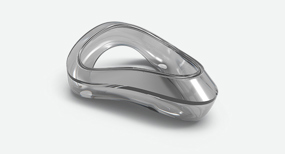When selecting a prototyping and low-volume manufacturer, there are several key factors to consider to ensure you find the right partner for your needs. Here are some critical aspects to evaluate:
1. Capabilities and Services
- Range of Services: Ensure they offer the services you need, such as 3D printing, CNC machining, injection molding, sheet metal fabrication, and more.
- Material Options: Check if they provide a wide range of materials (metals, plastics, composites, etc.) that suit your project requirements.
- Technology and Equipment: Evaluate their technology stack and equipment to ensure they have modern, efficient, and precise machinery.
2. Quality and Precision
- Quality Control: Look for robust quality control processes, including certifications like ISO 9001 or ISO 13485 (for medical devices).
- Tolerance and Precision: Assess their ability to meet your required tolerances and precision levels.
3. Experience and Expertise
- Industry Experience: Prefer manufacturers with experience in your specific industry or similar projects.
- Technical Expertise: Evaluate the expertise of their engineering team and their ability to provide design for manufacturability (DFM) feedback.
4. Turnaround Time
- Lead Times: Check their typical lead times for both prototyping and low-volume production. Ensure they can meet your deadlines.
- Rapid Prototyping: If speed is critical, verify their capability for rapid prototyping.
5. Cost
- Pricing Structure: Understand their pricing structure, including setup costs, per-unit costs, and any additional fees.
- Cost Transparency: Look for transparent pricing without hidden fees.
6. Scalability
- Low-Volume to High-Volume Transition: Ensure they can handle not just low-volume production but can also scale up if needed.
- Flexibility: Assess their flexibility in accommodating changes in order quantities and design modifications.
7. Communication and Support
- Responsiveness: Evaluate their responsiveness and the quality of their customer support.
- Communication Channels: Ensure clear and open communication channels, whether through dedicated account managers, online portals, or regular updates.
8. Reputation and References
- Client Reviews and Testimonials: Look for reviews and testimonials from other clients to gauge their reputation.
- Case Studies and References: Request case studies or references to understand their track record and reliability.
9. Geographical Location
- Proximity: Consider the geographical location for ease of communication and shipping logistics.
- International Capabilities: If you need international manufacturing, check their global reach and export capabilities.
10. Intellectual Property Protection
- IP Policies: Ensure they have strong policies and practices to protect your intellectual property.
- NDA Agreements: Verify that they are willing to sign non-disclosure agreements to safeguard your designs.
11. Sustainability and Ethics
- Environmental Practices: Consider their environmental policies and sustainable practices.
- Ethical Standards: Ensure they adhere to ethical labor practices and regulations.
By carefully evaluating these factors, you can choose a prototyping and low-volume manufacturer that aligns with your project needs, quality standards, and business goals.



